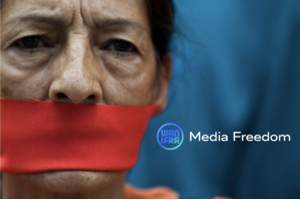Youth
World Mental Health Day through the lens of mental health practitioners in Bangladesh
Published
4 years agoon

Psycure Organization and BYLC jointly organised a webinar on October 10, in observance of World Mental Health Day, with the theme “Mental Health in an Unequal World.”
The event was supported by Rokomari .com, The Daily Star, and Science Bee. Representatives from each organisation were present. The event was graced by 150 beneficiaries.
The public panel discussion was moderated by Fabia Firoze, Chairperson of Psycure Organization and a program implementation coordinator with the Asia Foundation. Fabia was named as one of the three Global Youth Ambassadors for Gender Equality (SDG 5) by the Asian Development Bank. She was recognised by the CT Secretary of State for her outstanding service to the State of Connecticut in the US, and received the David. B Walker Award by the University of Connecticut for her tireless dedication to public service.
Furthermore, she worked with renowned organisations such as the Clinton Foundation, BRAC, and US government agencies.
The three panelists were Azharul Islam, Assistant Professor of the Department of Educational and Counseling Psychology of University of Dhaka and a bestselling psycho-fiction writer, as well as Dr M Tasdik Hasan, a medical doctor and public health specialist and a research associate at the University of Liverpool, UK and Monira Rahman, the founder of Innovation for Wellbeing Foundation which promotes mental health equity for sustainable development.
Rahman has been the Country Lead for Mental Health First Aid Bangladesh and is an Amnesty International Human Rights Defender Awardee.
The webinar covered various relevant issues such as parent-child attitudes towards mental health, the disparity in availing services, and ways to remove this disparity in Bangladesh.
Fabia Firoze started the discussion by focusing on the fact that the Covid-19 pandemic has had significant impacts on people’s mental health. Some groups, including health and other frontline workers, students, as well as those living alone, those living with and taking care of their families and those with pre-existing mental health conditions have been particularly affected. About 2 crore people in Bangladesh have been found to be suffering from mental disorders, according to a government survey.
Although Bangladesh has been identified as a country with a dire need of mental health services by the international community, the government spends only 0.44 percent of the national budget in this sector, and currently, there are only 0.073 psychiatrists per 100,000 populations. So, there is a critical need to cater to the mental health requirements of Bangladesh, mentioned Firoze.
Azharul Islam spoke at length about how more investment in research for culturally appropriate and indigenous solutions, and infrastructure development can help increase the availability and accessibility of mental health services. People are nowadays actively seeking psychological help. Yet, the lack of services outside Dhaka City is a big problem, Islam mentioned.
He emphasised on the delicate and time-intensive nature of encouraging a mass behavioral change in accepting and dealing with mental health issues. Furthermore, he stressed that the government can introduce a hotline number for citizens to discuss issues related to mental health.
Monira Rahman spoke about the necessity of public and private sector partnerships in tackling the gap in mental healthcare in Bangladesh. Despite the formulation of government policies concerning the biological care of mental issues, the implementation of such policies is a responsibility of both the public and private sectors, mentioned Rahman. She highlighted the importance of experts for social rehabilitation and integration, which are vital for recovery.
She emphasised on implementing a comprehensive Biopsychosocial model to enhance treatment and prevention strategies related to mental health issues. These strategies need to be established since changes in biological, social, and psychological influences are salient components to address mental health. She emphasized that prevention through developing resilience, self-care, and emotional awareness will take us far in improving mental healthcare services in Bangladesh.
The discussion further explored mental health as a career and addressed the differences between service providers in the medical field and psychological field. Quality assurance and the seeming lack of public faith in mental health services need to be addressed in the mental health sector, the discussants noted. All the panelists weighed on why high-tier psychologists are so few in the field, what may incentivise prospective students to choose mental health as a career, and addressed the critical role of non-professionals such as peer workers and lay counsellors in providing mental health services.
They reiterated that awareness, education, and understanding of mental health are success factors to address mental health in Bangladesh.
Dr M Tasdik Hasan mentioned many factors that create an unequal world, in terms of mental health. He discussed the need for social inclusion and the significance of empathy for improving the lives of people in crisis. To illustrate the importance of such psychological techniques, he spoke of his childhood experience of bullying, when sharing his experience with a teacher had helped him overcome his insecurities.
It helped him identify his individual strengths, which changed his life in a positive manner.
He also talked about the importance of understanding when one is in need of help, and indeed, in what respect. He discussed how those who don’t recognise the signs of deteriorating mental state often don’t have appropriate coping strategies and can end up feeling overwhelmed and out of control, which can hamper their daily activities. These are signs that one needs to see a mental health service provider, either a professional psychologist or a counsellor, who can conduct appropriate assessments, he mentioned.
Though the process of changing the mental health landscape may be a long and tedious process, the mental health practitioners were hopeful that if everyone comes together, we can promote mental health for all in Bangladesh. The public panel discussion ended with an interactive question and answer session with the participants.
The most influential and award-winning tech journalist based in Dhaka, Bangladesh. President of Bangladesh Tech Journalists umbrella association name Bangladesh ICT Journalist Forum(BIJF).He works for The Daily Ittefaq and is responsible for covering news, editing posts, reviewing devices, producing video reviews, and communicating with the reader base. Journalist, editor, technology, personal technology, reviews, features, analysis, media.

You may like
-
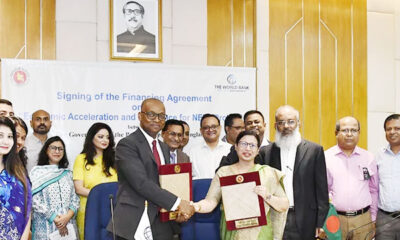

World Bank Helps 900,000 Rural Youth in Bangladesh with Better Employability and Entrepreneurial Opportunities
-
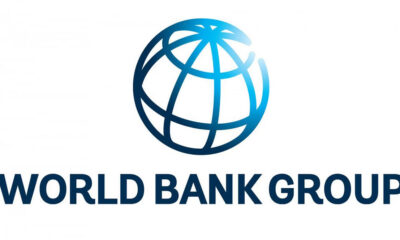

Bangladesh Receives $858 Million World Bank Financing to Improve Climate Resilient Agriculture Growth and Road Safety
-
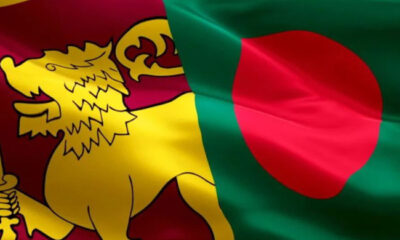

Sri Lanka pays back $50 million to Bangladesh
-
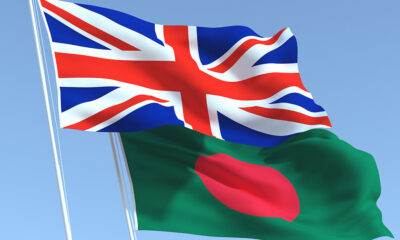

UK: Bangladesh makes huge progress in last 20 years
-


ASUS launched four incredible laptops in Bangladesh
-
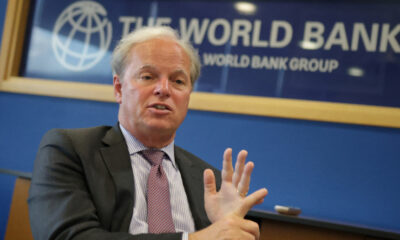

World Bank Managing Director to Visit Bangladesh
Youth
Dhaka Flow inaugurates ‘Transformation’ At Dutch Embassy
Published
7 months agoon
July 25, 2025
The Transformation: Art of Alchemy exhibition was officially inaugurated on Wednesday at the Residence Gallery of the Dutch Embassy.
Guests explored evocative works by featured artists Vinita Karim, Rokeya Sultana, Asma Akber, Abdus Shakoor, Proshanta Karmakar Buddha, Biplob Chakraborty, and Ranjit Das.
The exhibition space allowed for meaningful dialogue on the transformative power of art in healing and wellbeing.
“Community healing begins with the shared processing of grief, joy, confusion, and hope,” said Shazia Omar, founder and CEO of Dhaka Flow.
“Through this visual exhibition and our workshops, we wanted to curate a multi-dimensional experience that highlighted the importance of shared creative expression in community healing.”
“Transformation: Art of Alchemy” was a powerful step forward in Dhaka Flow’s mission to create spaces where art and wellness intersect.
As we look ahead, we are committed to deepening this work—especially by uplifting emerging and youth artists across Bangladesh. Our vision is to keep expanding opportunities for shared creative expression, and to continue exploring the ways art and community can support collective wellbeing.
Alongside the artwork, Dhaka Flow has conducted a breathwork—meditation session in the space, with another one coming up soon.
They are also hosting three art workshops at the Dhaka Flow studio, and attendees are invited to sign up using the link below.
The Dhaka Flow team was present to greet visitors and share their vision for more events that celebrate artists and create space for transformation through movement, breath, and art.
In August, the space will host another exhibition presenting youth artwork from around the country.
The exhibition remains open until the end of July, and paintings can be viewed every Saturday from 12–5pm by appointment only.
Youth
Mystery at the Station: Youth Who Attacked ASI Found Dead in Pond Near Gaibandha Police
Published
7 months agoon
July 25, 2025
A bizarre and chilling chain of events unfolded at Saghata Police Station in Gaibandha, leaving a community in shock and a mystery in its wake. A young man who had barged into the station, attempted to snatch a rifle, and stabbed an Assistant Sub-Inspector (ASI), was found dead in a nearby pond early Friday morning.
The drama began around 10:00 PM on Thursday, when the unidentified youth, believed to be in his late twenties, entered the police station claiming he wanted to file a complaint. Things quickly escalated. According to police and eyewitnesses, an argument broke out when the computer operator asked the youth to write down the complaint himself and bring it in.
Suddenly, the youth lunged at a constable, trying to grab his rifle. In the chaos that followed, ASI Mohsin Mia and others rushed in to stop him. A scuffle broke out, and the youth managed to stab ASI Mohsin before fleeing into the night.
As it happened, a local arbitration meeting was being held right outside the station. Locals and police joined forces in hot pursuit. Moments later, the youth was seen diving into the pond beside Saghata Pilot High School, trying to hide under thick water hyacinths.
The area was cordoned off, and police kept vigil overnight. Locals eventually went home. But when dawn broke, the Fire Service recovered the youth’s lifeless body from the pond. Whether he drowned or succumbed to other causes is still unknown. His body was taken to the station and later sent to Gaibandha General Hospital for an autopsy.
Speaking to Prothom Alo, Officer-in-Charge Badsha Alam confirmed the incident, saying:
“We cannot confirm the cause of death until we receive the post-mortem report. A legal investigation is underway, and we are working to identify the individual.”
He added that ASI Mohsin suffered injuries to his hand and forehead and was treated at Saghata Upazila Health Complex. A formal briefing on the incident is expected soon.
One eyewitness, Abdullah Mondal, recounted the surreal scene:
“There was a loud commotion, and then I saw this unknown young man running like his life depended on it, with cops and locals behind him. Then—splash—he dove into the pond. But after that… nothing.”
As authorities dig into the circumstances surrounding this strange encounter, one question lingers in the air: Who was he, and what drove him to charge into a police station with chaos in his eyes and a knife in his hand?
Youth
Words That Win: Global Spell Bee 2025 National Final Wraps Up at North South University
Published
7 months agoon
July 25, 2025
The air at North South University buzzed with brains and big dreams as the national finale of Global Spell Bee 2025 reached its crescendo. Students from across the country battled it out with syllables and synonyms, showing off not just stellar spelling skills but razor-sharp thinking and academic brilliance.
Organised by EduPro Concepts BD Ltd. in collaboration with GateKeepr and Help the Future, and proudly hosted by the North South University Debate Club, this event wasn’t just a spelling showdown—it was a stage where young minds from grades 4 to 12 danced with words, discovered their potential, and learned to roar (politely, of course) in perfect English.
The event is a part of the internationally recognized Global Spell Bee, and the stakes were sky-high. Winners from this round will pack their dictionaries and dreams for Dubai this October, where they’ll go head-to-head with contestants from nearly 50 countries for a shot at global recognition—and one life-changing educational journey.
The grand finale drew in an impressive crowd of guests and dignitaries. Chief Guest Professor Abdul Hannan Chowdhury, Vice-Chancellor of NSU and Chairman of Grameen Bank, lit up the stage with encouragement:
“Competitions like the Global Spell Bee help students become smarter, more confident, and better at expressing their thoughts. The moment you stepped in and competed, you already won.”
Stephen Forbes, Country Director of the British Council Bangladesh, chimed in with wise words wrapped in inspiration:
“Education gives you choices. The more you learn, the more life brings you options.”
Also present was Mohammad Inzamul Haque, Assistant Personal Secretary to the Education Adviser at the Ministry of Education, who praised the competition for going beyond grades and grammar:
“It builds confidence, discipline, and communication—skills that are essential for the world these students are stepping into.”
The competition itself? Oh, it was fierce. It had everything—from intense written and oral rounds to workshops, mentorship marathons, and plenty of “spell-offs.” Contestants had access to premium vocabulary resources and coaching that leveled up their comprehension and communication game.
In the senior category, the finale was so tight, it needed a tiebreaker—because apparently, excellence decided to show up twice. Eventually, Nabiha Tahseen Nubah from Sunnydale School claimed the crown. Over in the junior category, Ibnat Namira Ahmed from Summerfield International School stole the spotlight.
Every participant walked away with medals and certificates, but more than that—they carried home confidence, connections, and a renewed love for learning.

From Confusion to Clarity: Dheow’s Book Helps Users Master ChatGPT Conversations

Pre-Orders Open for Mojahidul Islam’s Latest Computer Book ‘AI Shikhun, Taka Gunun’

Bangladesh’s Press at a Crossroads: Between Promises of Reform and the Shadows of Repression









